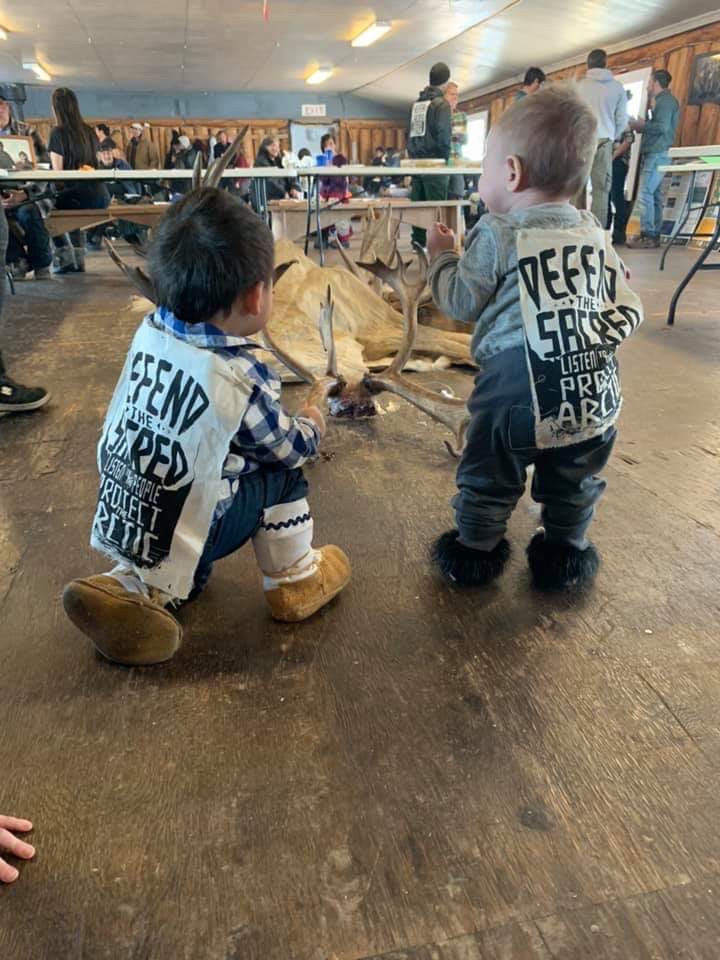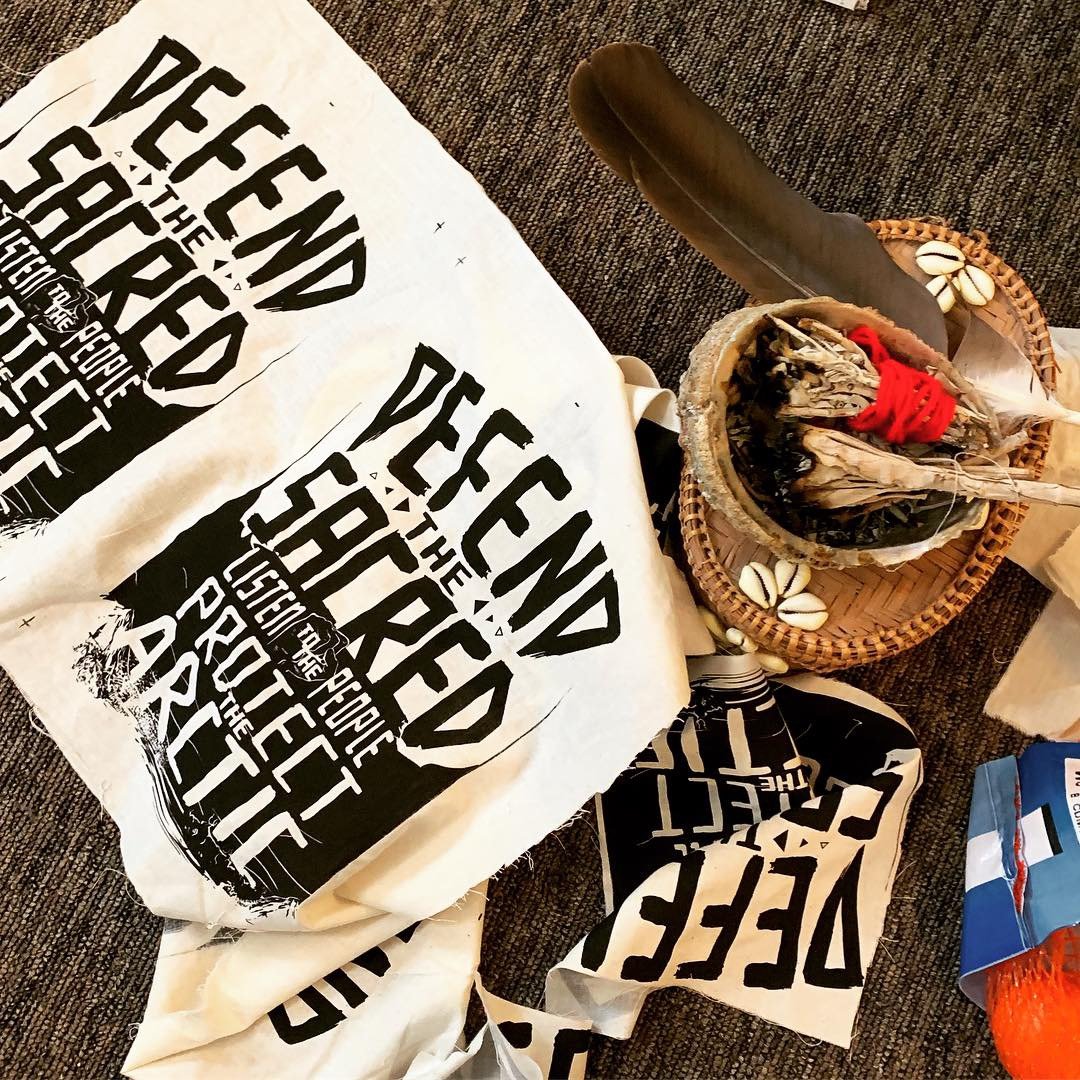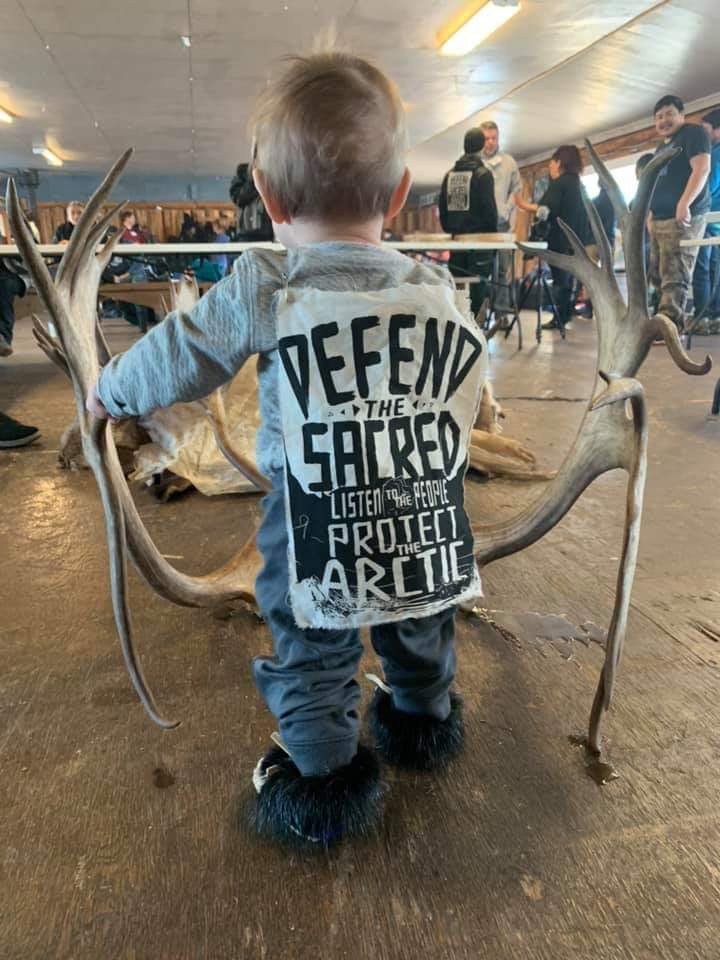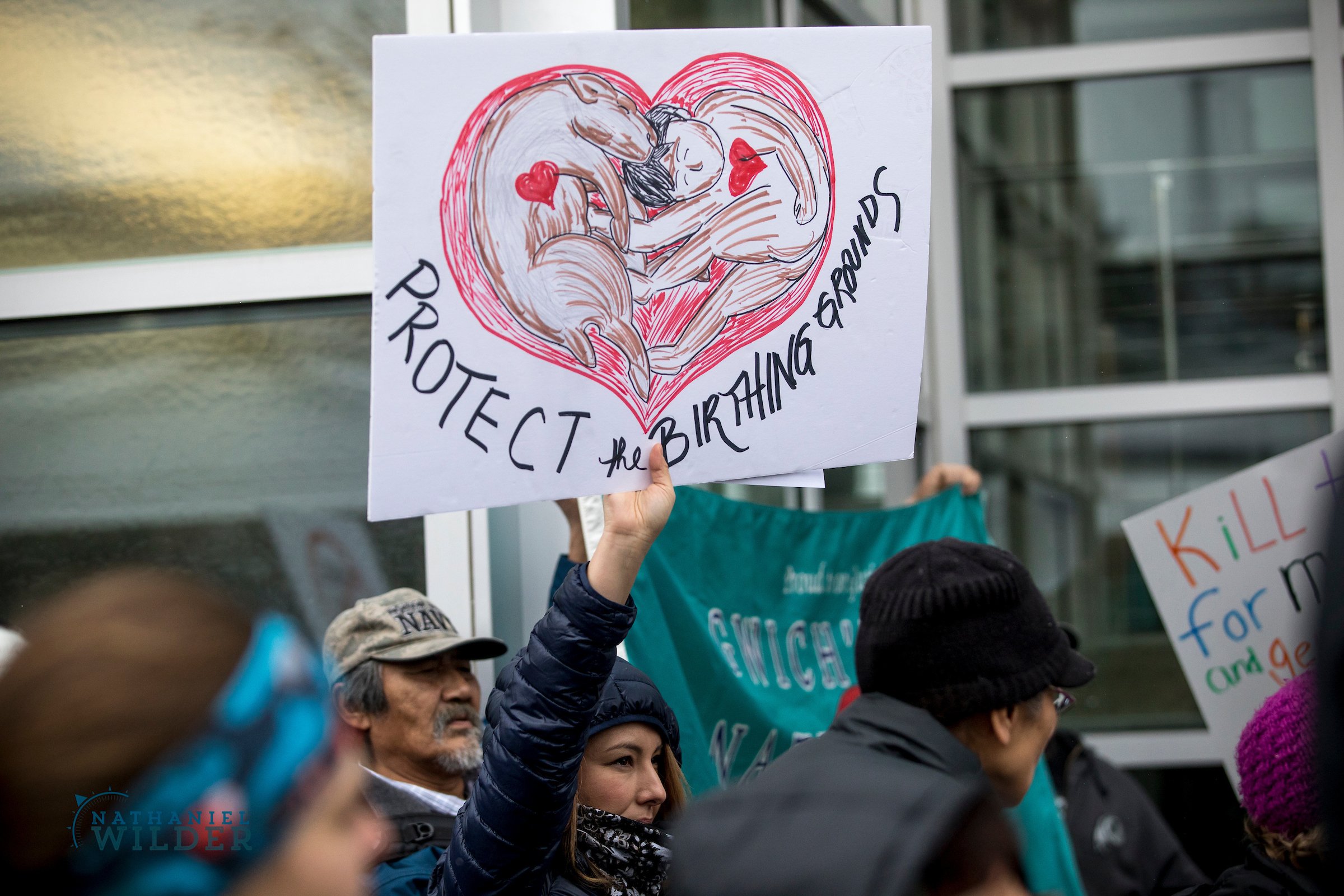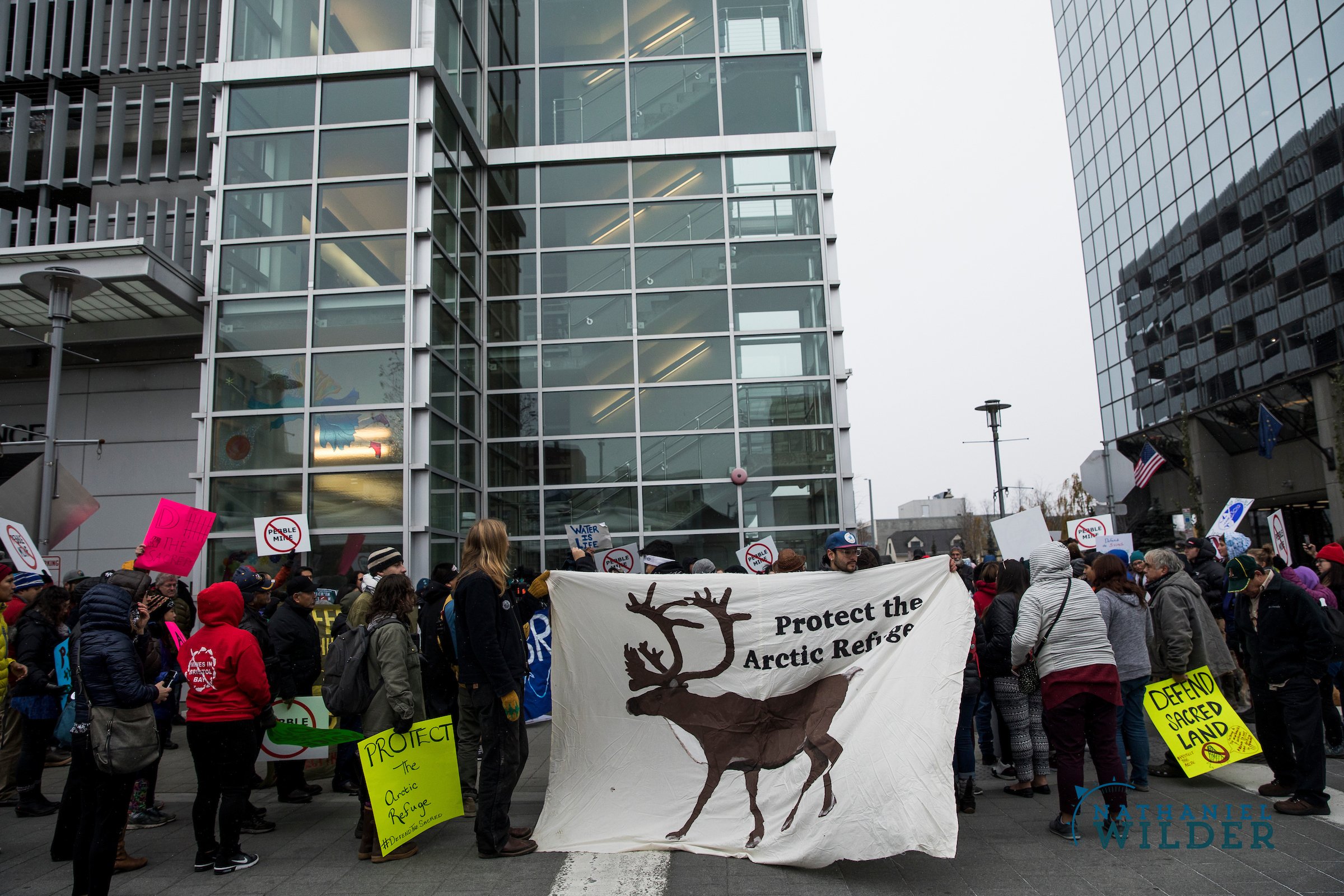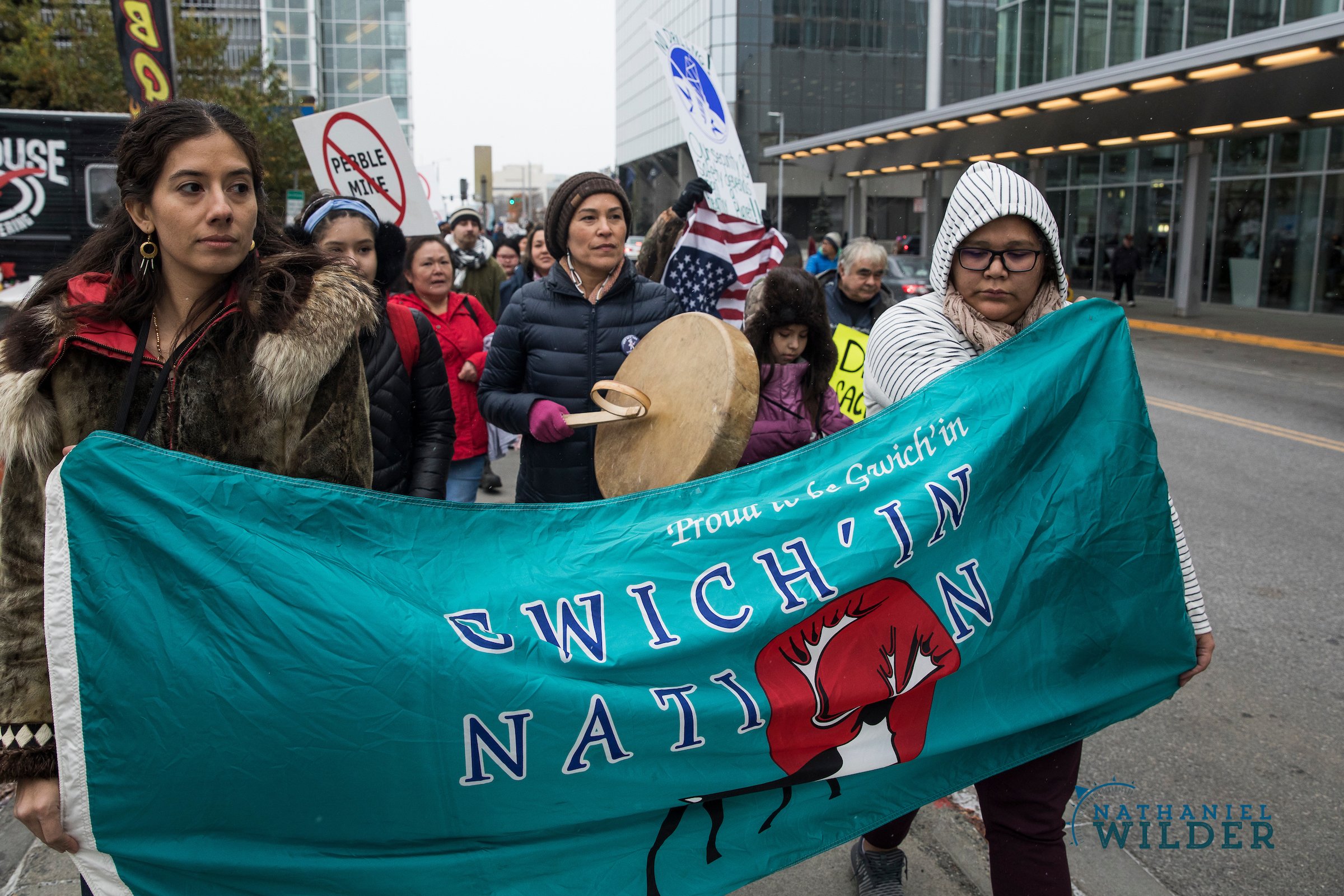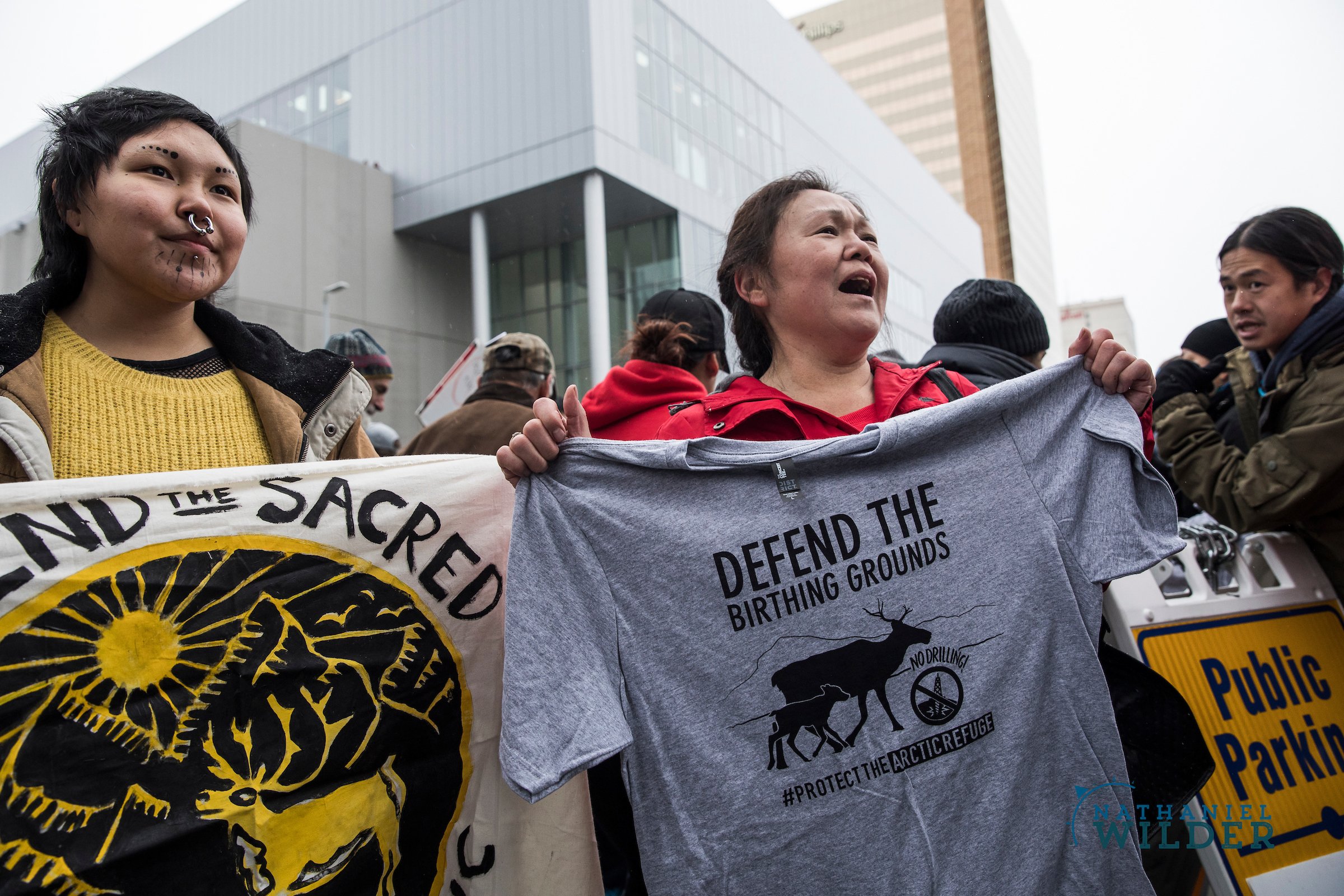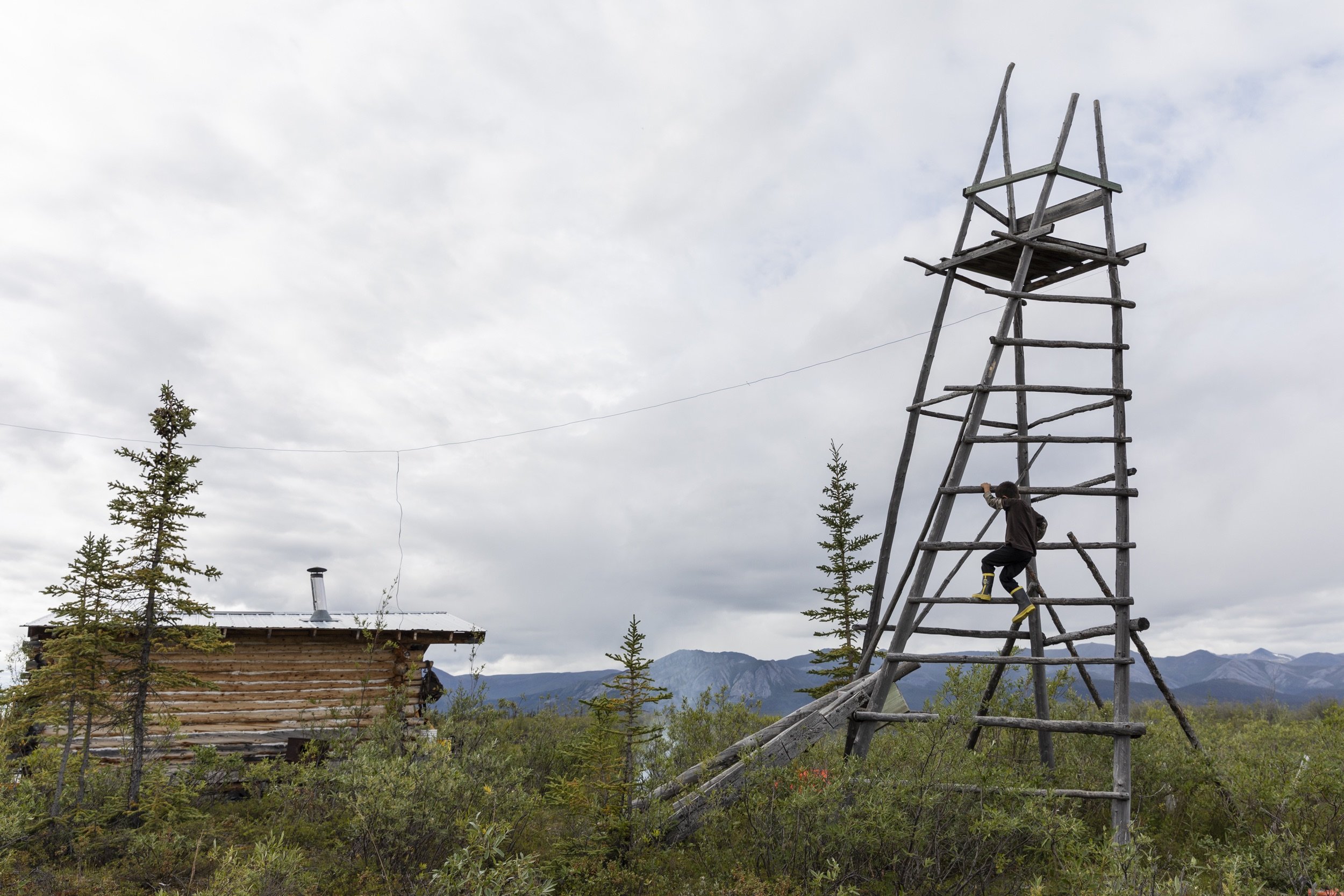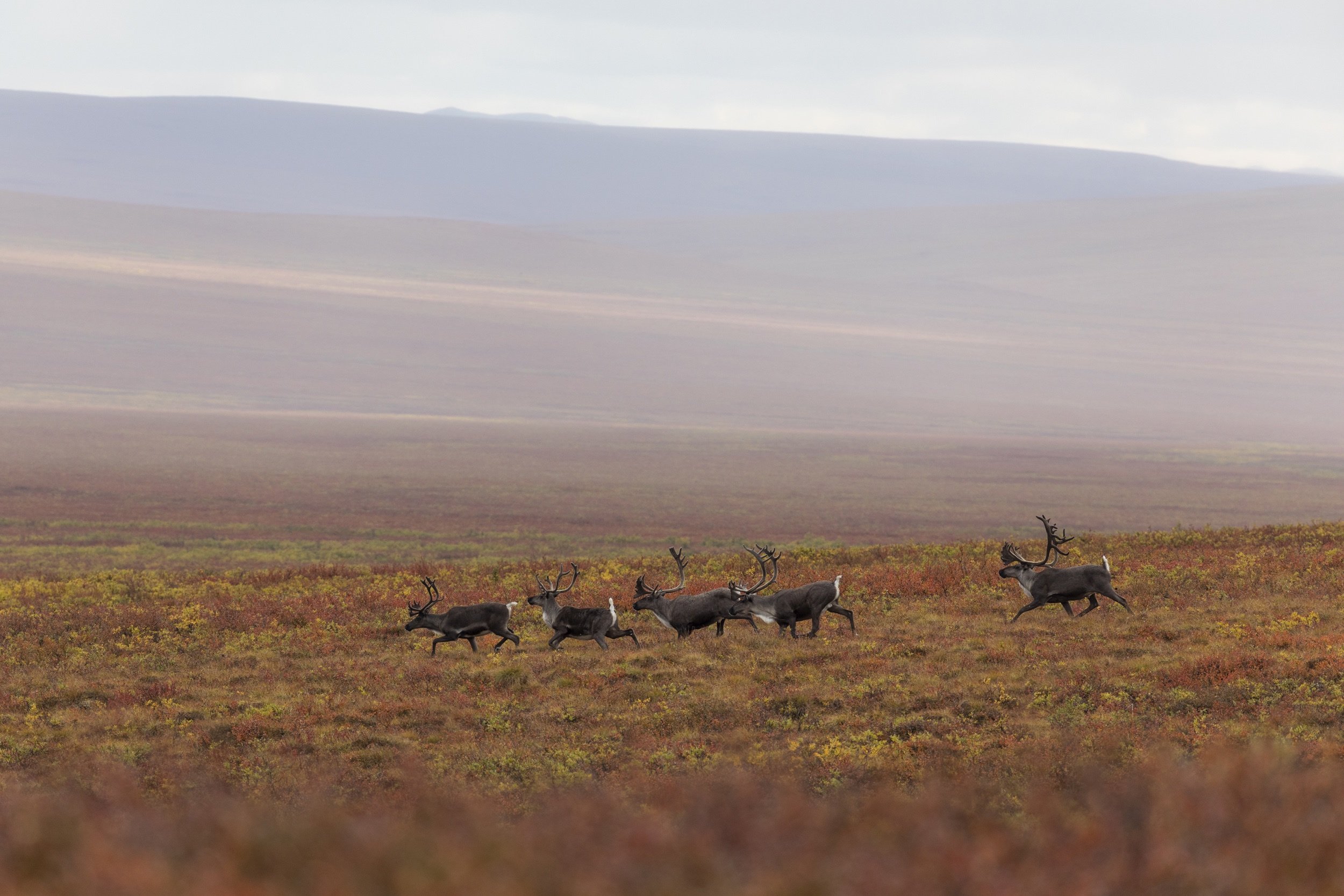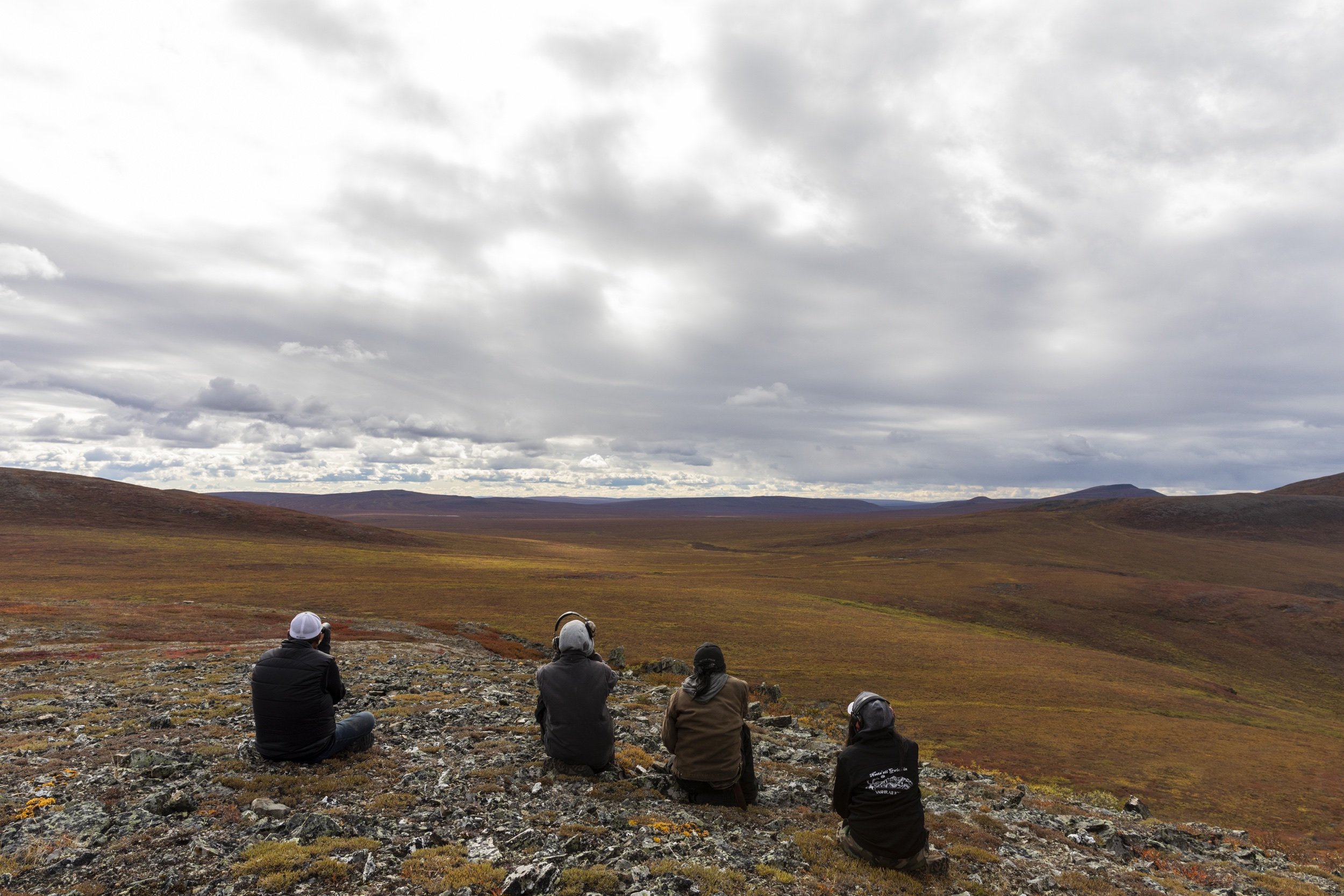
Our elected 2025 U.S. Congress is ignoring Indigenous peoples’ rights and blatantly working for the oil industry; opening up 1.5 million acres to oil and gas leasing in the Arctic Refuge.With your support we can continue our critical work building grassroots leadership, maintaining resistance to harmful development that threatens food sovereignty and subsistence rights, and advancing a just and equitable vision for Alaska.
Gwich’in Nation Condemns Actions by the Trump Administration to Open Entire Coastal Plain of the Arctic Refuge to Oil and Gas Development
For Immediate Release October 23, 2025 from the Gwich’in Steering Committee
“Today in DC, Secretary Burgum announced that the Department of the Interior is opening the entire 1.56 million acres of the sacred Coastal Plain to oil and gas leasing. This is the most destructive leasing program possible, which we know would cause irreparable harm to the Porcupine Caribou herd and our way of life. The Gwich’in strongly condemn this action by the Trump administration and stand united against any development in the Arctic Refuge.
During today’s announcement, the Secretary claimed that they are opening the Coastal Plain for the benefit of Northern communities. Yet, no one from this administration has reached out to our Gwich’in communities to listen to how this would affect our livelihood. This is yet another disrespectful action from decision-makers that ignores the voice of the Gwich’in and violates our rights as Indigenous people.”
The area known as the Arctic National Wildlife Refuge – the Arctic Refuge – is the homelands of the Gwich’in and Iñupiaq peoples. For thousands of years Gwich’in and Iñupiaq peoples have maintained strong relationships with the plants, animals, lands, and waters of this area.
The coastal plain is commonly known as a sacred place: the birthing grounds of the Porcupine Caribou herd.
The Porcupine Caribou herd migrates from the coastal plain of Alaska through the Brooks Range and throughout Gwich'in homelands in both the US and Canada.
The harvesting of the Porcupine Caribou herd is critical for the well-being and food security of the Indigenous peoples and local communities of these areas.
The Porcupine Caribou herd provides food for many families throughout Alaska via traditional trade practices. The need for this trade is becoming even more evident as other vital food sources across the state are being depleted.
It is important, now more than ever, to protect the remaining healthy food sources we have left and to honor these relationships that have been held for thousands of years.
The impacts of drilling in the Arctic Refuge are a Human Rights issue; it would significantly impact Gwich’in and Iñupiaq Way of Life.
Drilling for oil and gas in the Coastal Plain (1002 area) of the Arctic Refuge would disrupt and terrorize the birthing grounds of the Porcupine Caribou Herd, an essential part of both Indigenous nations’ way of life.
On September 28th, 2023 Gwich’in leaders once again voiced opposition to oil and gas development in the Arctic Refuge.
Help us reach 10,000 pledges to Defend the Sacred and Protect the Arctic. Our regional organizers at Native Movement will keep you updated to federal, state, and community action opportunities, as well as links to local events and resources to dive deeper into organizing and educating for environmental justice.





